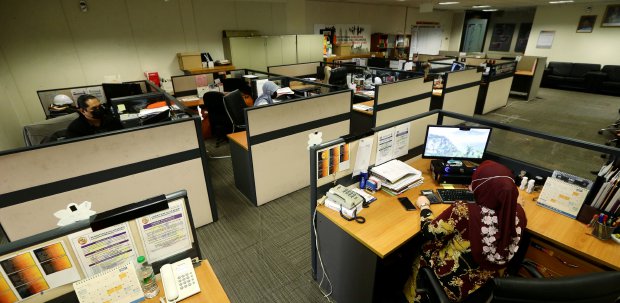Ensuring a high-quality public service has always been the nation's commitment. The instrument of government that is largely responsible for that is the civil service. The civil service has never shirked from that responsibility.
Few would dispute that the civil service has always strived to never compromise on quality. This is because it is aware that poor service is a negative reflection on the government.
As the group that enjoys the largest share of the government's operating budget, it is normal for the performance of the civil service to be always on the people's radar.
Concerns about the declining quality of the civil service have intensified in recent years. The latest has stirred up a heated debate. The unusual attention given by the media may have added more fuel to the issue.
It was no surprise that social media quickly joined the fray, offering all kinds of responses to the recent outcry from a politician known for making controversial statements. The responses have been mixed. Some expressed support for reform.
Even some retired civil servants offered stinging support, calling for urgent change. There are also many who disagreed with that stand. They lambasted the politician for racialising the issue. The fact that the comment generated a massive response from the public is enough justification to not ignore the issue.
From the many online exchanges, it is clear the issue goes beyond racial lines. The racial slant was deliberately done to attract as much public attention as possible. Nobody would take notice otherwise.
As expected, the issue has boiled over on social media. Many are disappointed with the negative portrayal of the civil service on YouTube. Episodes of deplorable behaviour of some civil servants have gone viral.
They have incited equally repulsive comments from netizens. It is unfortunate that the positive sides of the service are rarely shared. There are many in the civil service who are doing a great job.
Even members of the public — from personal experiences — have occasionally posted admiration of the service. Few would disagree that the civil service has changed a lot for the better over the years.
Notwithstanding the flare-ups, the civil service should take the criticisms as a way to make improvements. After all, quality is not something static. Expectations change constantly as the environment changes.
New criteria on demand for service would emerge as technology changes. As always pronounced by the Japanese people, quality is a journey.
As defined in the quality cycle of "plan, do, check and action", continuous improvement is the hallmark of the quality culture. This is referred to as "kaizen" in the Japanese lingo. So the feedback should be taken positively to correct the state of operation.
Many suggestions have been offered to improve the civil service. One concerns choosing the right talent for the job. For example, those chosen to work on the front line directly facing the public must not be short-tempered.
The practice of choosing heads of ministries and departments based on seniority is also seen as counterproductive. It is inevitable that those nearing retirement are selected.
They are not given enough time to master the job and, therefore, perform poorly. Things were different in the 1980s and 1990s, when the heads were chosen based on merit. Seniority was only a minor consideration.
Concerns have also been raised about appointing non-professionals, particularly administrators, to head professional departments in the civil service.
If meritocracy is used more in the civil service there should not be much room to complain about Malay domination.
Malays are seen to dominate because they form the majority of the population. Furthermore, civil service pay is way below the private sector norms.
The writer is a Professor at the Tan Sri Omar Centre for STI Policy, UCSI University
The views expressed in this article are the author's own and do not necessarily reflect those of the New Straits Times





